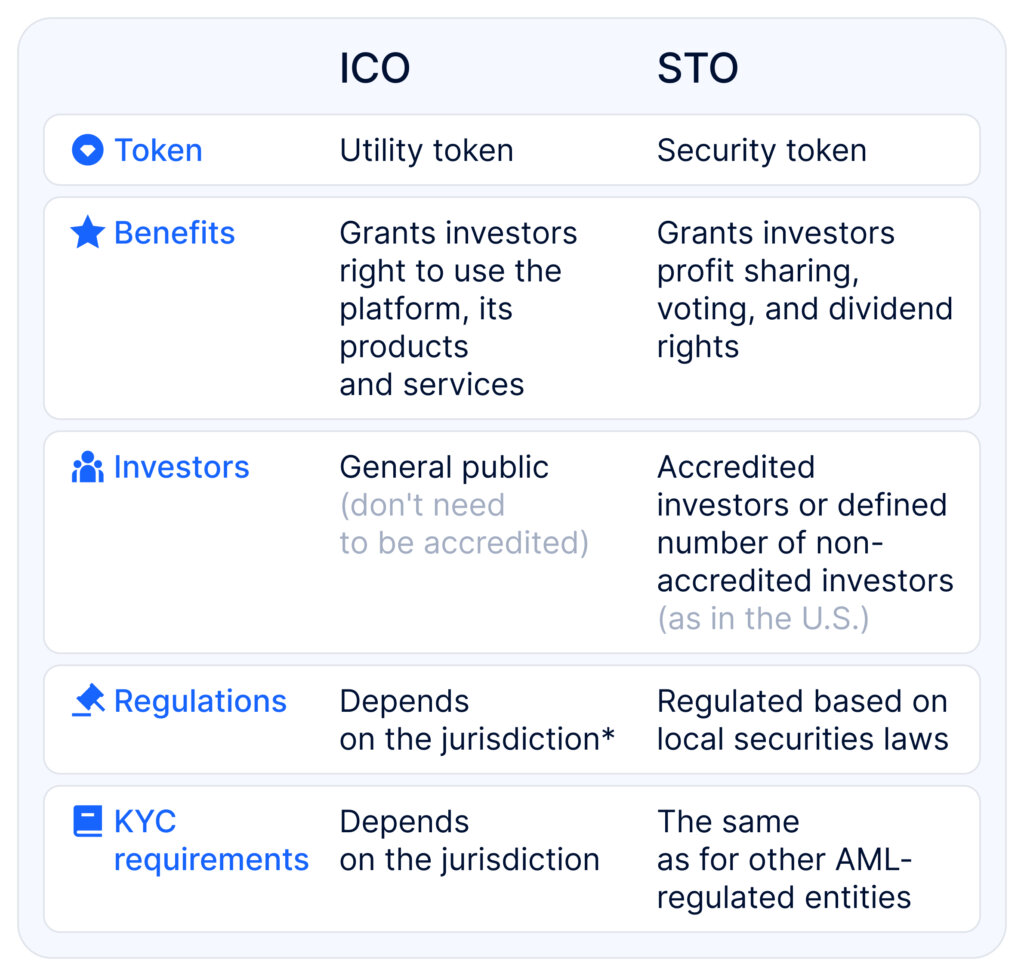How Regulations Affect ICOs and Token Sales

- Understanding the impact of regulations on ICOs
- The evolving landscape of token sales and regulatory compliance
- Navigating the legal challenges of launching an ICO
- Regulatory hurdles faced by ICOs and token sales
- Compliance considerations for successful token offerings
- The future of ICOs in a regulated environment
Understanding the impact of regulations on ICOs
Understanding the impact of regulations on Initial Coin Offerings (ICOs) is crucial for both investors and project developers. Regulations play a significant role in shaping the landscape of ICOs and token sales, affecting how they are conducted and the level of investor protection provided. Here are some key points to consider:
- Compliance: Regulations require ICOs to comply with certain legal requirements, such as Know Your Customer (KYC) and Anti-Money Laundering (AML) procedures. Failure to comply can result in legal consequences for the project.
- Investor Protection: Regulations aim to protect investors from fraudulent or scam ICOs by setting standards for transparency, disclosure, and accountability. This helps to build trust in the industry and attract more legitimate projects.
- Market Stability: Regulations can help to promote market stability by preventing market manipulation, insider trading, and other unethical practices. This can lead to a more sustainable and healthy ICO ecosystem.
- Global Compliance: ICOs are often conducted on a global scale, making it challenging to navigate the complex web of regulations in different jurisdictions. Project developers need to be aware of and comply with regulations in each country where they operate.
In conclusion, regulations have a significant impact on ICOs and token sales, shaping the industry and influencing how projects are conducted. By understanding and complying with regulations, both investors and project developers can contribute to a more trustworthy and sustainable ICO ecosystem.
The evolving landscape of token sales and regulatory compliance
Token sales have become a popular method for blockchain projects to raise funds, but the regulatory landscape surrounding them is constantly evolving. It is crucial for companies launching ICOs to stay informed about the latest regulations to ensure compliance and avoid legal issues.
Regulatory bodies around the world are taking a closer look at token sales to protect investors and prevent fraudulent activities. This increased scrutiny has led to a more complex regulatory environment for ICOs, with different countries implementing varying rules and guidelines.
Companies conducting token sales must navigate this regulatory maze to ensure they are operating within the law. Failure to comply with regulations can result in severe consequences, including fines, legal action, and damage to the project’s reputation.
As the regulatory landscape continues to evolve, companies launching token sales must stay proactive in understanding and adapting to the changing rules. Working with legal experts who specialize in blockchain and cryptocurrency regulations can help ensure compliance and mitigate risks.
Navigating the legal challenges of launching an ICO
Launching an ICO can be a complex process, especially when it comes to navigating the legal challenges involved. It is crucial for companies to ensure that they are compliant with regulations in the jurisdictions where they operate. Failure to do so can result in severe consequences, including fines and legal action.
One of the key legal challenges of launching an ICO is determining whether the tokens being offered are considered securities. If they are classified as securities, companies must comply with securities laws, which can be time-consuming and expensive. Companies must also consider other legal issues, such as anti-money laundering regulations and consumer protection laws.
Working with experienced legal counsel is essential for companies looking to launch an ICO. Legal experts can help companies navigate the complex regulatory landscape and ensure that they are compliant with all relevant laws. By working with legal counsel, companies can minimize their legal risks and increase the chances of a successful ICO.
Regulatory hurdles faced by ICOs and token sales
When it comes to ICOs and token sales, one of the biggest challenges that companies face are the regulatory hurdles imposed by various governing bodies. These regulations can vary greatly from country to country, making it difficult for companies to navigate the legal landscape.
One of the main concerns for regulators is the potential for fraud and scams in the ICO space. This has led to increased scrutiny and tighter regulations to protect investors from unscrupulous actors. Companies looking to launch an ICO or token sale must be prepared to comply with Know Your Customer (KYC) and Anti-Money Laundering (AML) regulations to ensure they are not running afoul of the law.
Another challenge for ICOs and token sales is the lack of clarity around securities laws. In many jurisdictions, tokens are considered securities and are subject to strict regulations. Companies must carefully consider whether their token falls under the definition of a security and take the necessary steps to comply with securities laws to avoid legal repercussions.
Overall, the regulatory hurdles faced by ICOs and token sales can be daunting, but with careful planning and legal guidance, companies can navigate the complex regulatory landscape and launch successful token sales that comply with the law.
Compliance considerations for successful token offerings
When considering launching a token offering, it is crucial to take compliance into account to ensure a successful outcome. Compliance with regulations is essential to avoid legal issues and maintain the trust of investors. Here are some key considerations to keep in mind:
- Regulatory Framework: Familiarize yourself with the regulatory framework in the jurisdiction where you plan to launch your token offering. Different countries have different regulations regarding ICOs and token sales.
- Legal Counsel: It is advisable to seek legal counsel to ensure that your token offering complies with all relevant laws and regulations. Legal experts can help you navigate the complex regulatory landscape.
- Transparency: Transparency is key to gaining the trust of investors. Provide clear and comprehensive information about your project, team, and token offering to potential investors.
- Anti-Money Laundering (AML) and Know Your Customer (KYC) Procedures: Implement robust AML and KYC procedures to prevent money laundering and comply with regulations aimed at combating financial crimes.
- Investor Protection: Consider implementing measures to protect investors, such as offering refunds in case the project does not materialize as planned.
By taking compliance considerations seriously and ensuring that your token offering adheres to all relevant regulations, you can increase the chances of success and build a strong foundation for your project.
The future of ICOs in a regulated environment
As regulations continue to evolve in the cryptocurrency space, the future of ICOs in a regulated environment remains uncertain. While regulations can provide a level of protection for investors, they can also stifle innovation and hinder the growth of the industry. It is crucial for regulators to strike a balance between protecting investors and allowing for innovation to thrive.
One potential impact of regulations on ICOs is the requirement for companies to conduct thorough due diligence on their projects before launching a token sale. This can help weed out fraudulent or low-quality projects, providing investors with more confidence in the legitimacy of the offerings. However, this can also increase the cost and time involved in launching an ICO, potentially deterring some companies from pursuing this fundraising method.
Another aspect to consider is the potential for regulations to limit the pool of potential investors for ICOs. By imposing restrictions on who can participate in token sales, regulators may inadvertently limit the ability of companies to raise the necessary funds to bring their projects to fruition. This could have a negative impact on innovation in the industry as a whole.
Overall, the future of ICOs in a regulated environment will likely depend on how regulators strike a balance between protecting investors and fostering innovation. It is essential for regulators to work closely with industry stakeholders to develop regulations that are effective in achieving these goals without stifling the growth of the industry. Only time will tell how regulations will shape the future of ICOs and token sales.





